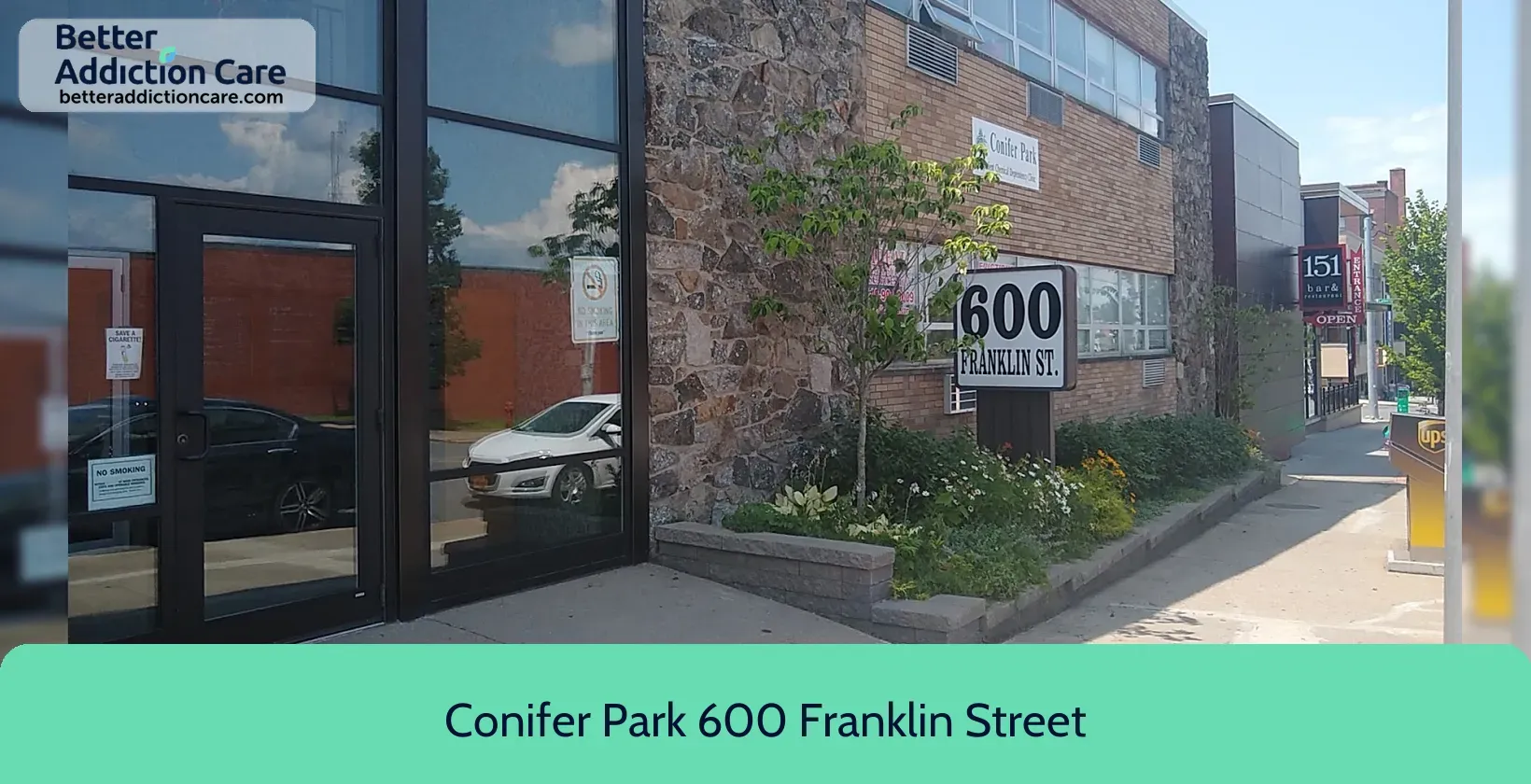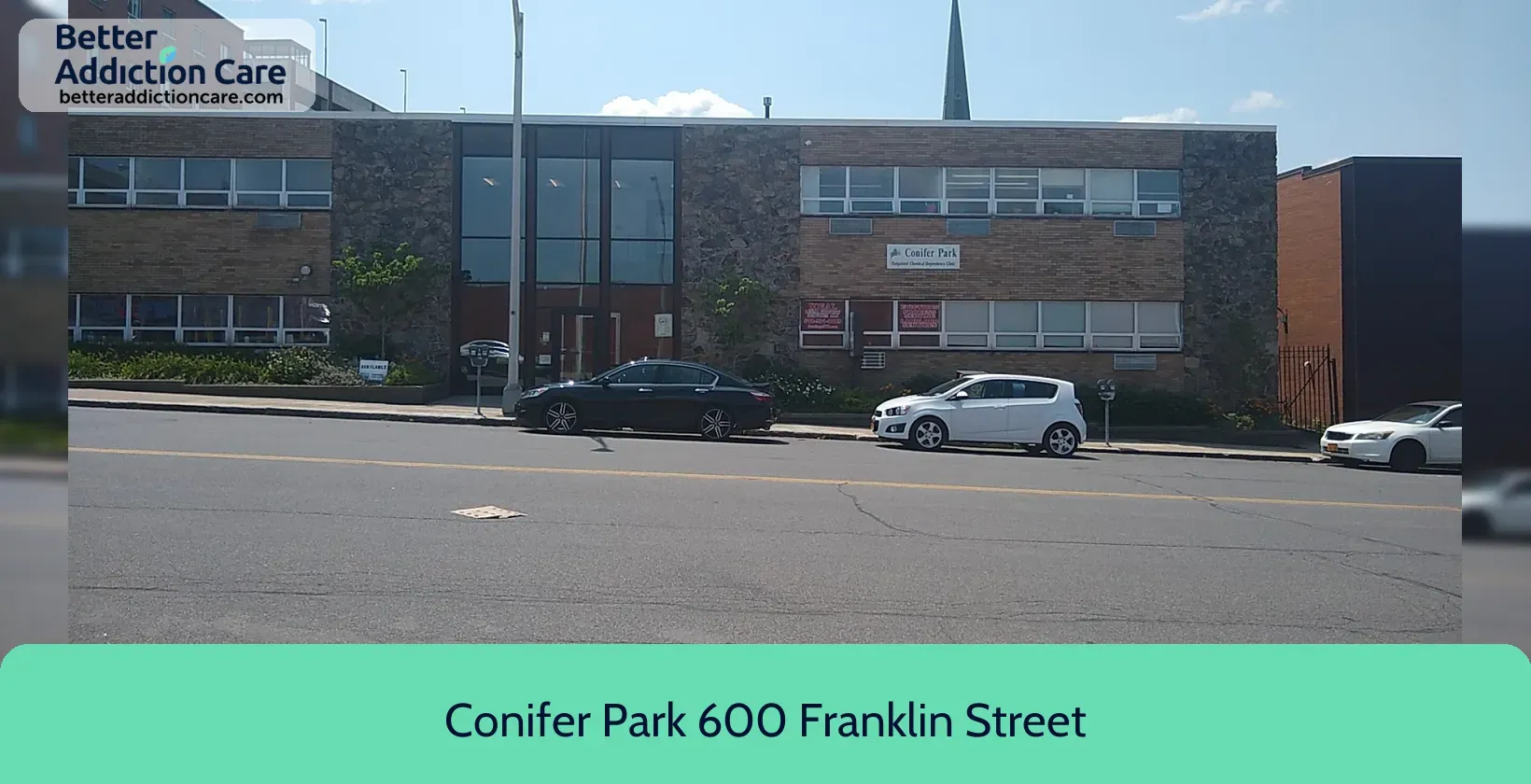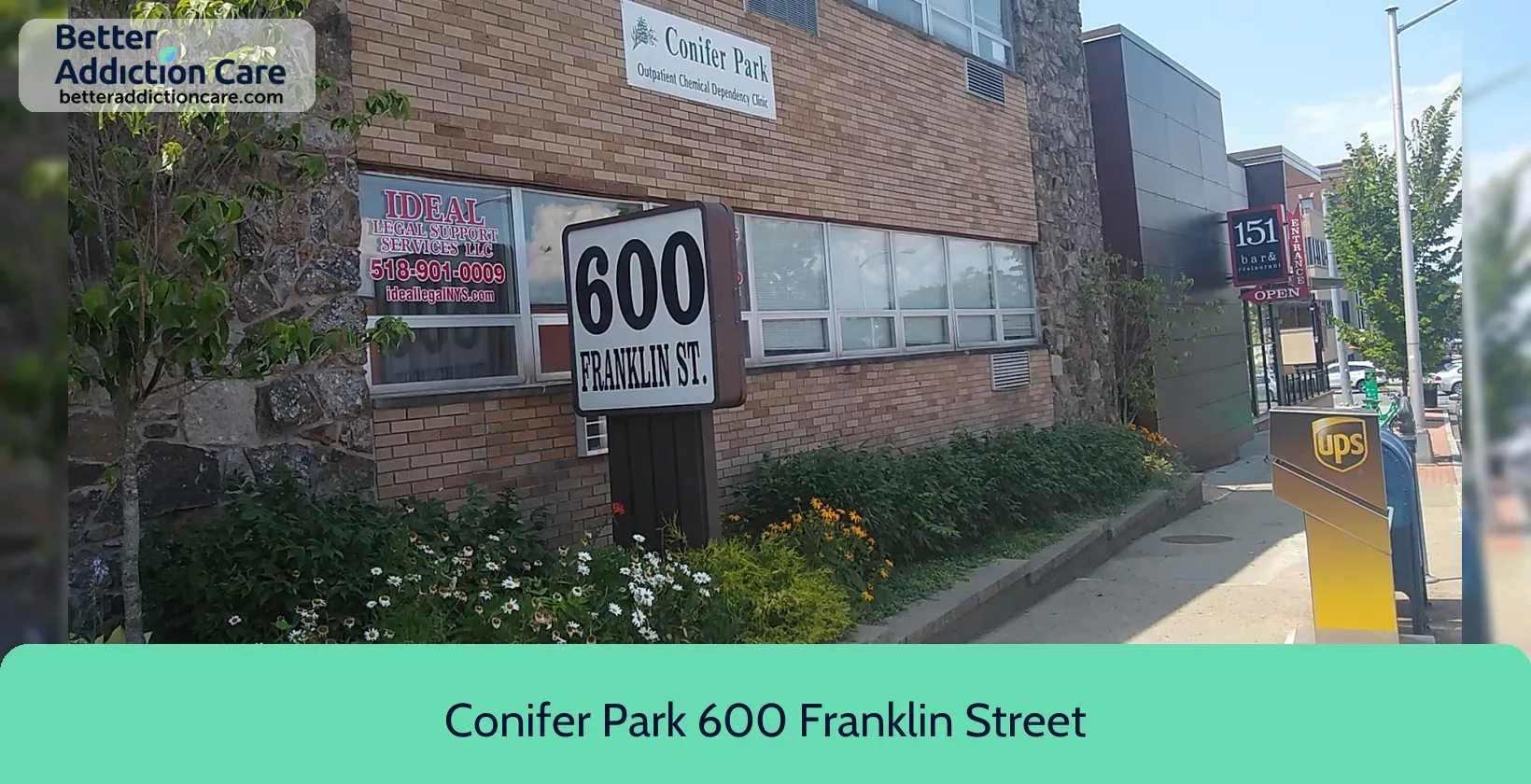Conifer Park 600 Franklin Street
Overview
Conifer Park, located in Glenville, New York, is a private inpatient chemical dependency treatment center offering comprehensive services in a beautiful setting conducive to recovery.
Conifer Park provides medically supervised detox, inpatient treatment, and dual diagnosis treatment. The medically supervised detox and crisis counseling services at Conifer Park are offered in their withdrawal and stabilization unit.
This service is designed for individuals experiencing withdrawal symptoms, including physical or psychiatric complications, associated with substance dependence. The monitored withdrawal process, overseen by professionals, ensures safety and efficiency.
Inpatient treatment at Conifer Park is provided in gender-specific units, addressing medical, psychological, social, vocational, and legal issues related to addiction. Treatment plans are comprehensive, targeting both the addiction and its associated factors. Each patient is assigned an addiction specialist who helps create a personalized recovery plan tailor.
A multidisciplinary team of healthcare professionals collaborates to support patients' mental health conditions. An aftercare plan is developed prior to discharge to ensure continuous mental health support.
Conifer Park 600 Franklin Street at a Glance
Payment Options
- Cash or self-payment
- Medicaid
- Medicare
- State-financed health insurance plan other than Medicaid
- Private health insurance
Assessments
- Screening for tobacco use
- Comprehensive mental health assessment
- Comprehensive substance use assessment
- Outreach to persons in the community
- Screening for mental disorders
Age Groups
- Adolescents
- Young adults
- Children/adolescents
Ancillary Services
- Case management service
- Specially designed program for DUI/DWI clients
- Serves only DUI/DWI clients
- Early intervention for HIV
- Mental health services
Highlights About Conifer Park 600 Franklin Street
7.43/10
With an overall rating of 7.43/10, this facility has following balanced range of services. Alcohol Rehabilitation: 8.00/10, Drug Rehab and Detox: 8.15/10, Insurance and Payments: 6.00/10, Treatment Options: 7.58/10.-
Drug Rehab and Detox 8.15
-
Alcohol Rehabilitation 8.00
-
Treatment Options 7.58
-
Insurance and Payments 6.00
Accreditations
SAMHSA certification for opioid treatment program (OTP):
SAMHSA's Opioid Treatment Programs (OTP) accreditation is a prestigious recognition that signifies a program's compliance with stringent standards and guidelines established by the Substance Abuse and Mental Health Services Administration (SAMHSA). This accreditation demonstrates an OTP's commitment to providing high-quality, evidence-based care for individuals struggling with opioid use disorder (OUD). It serves as a trusted symbol of accountability and excellence, assuring patients, families, and communities that the OTP offers safe, effective, and comprehensive treatment options for OUD.
Treatment At Conifer Park 600 Franklin Street
Treatment Conditions
- Mental health treatment
- Substance use treatment
- Co-occurring Disorders
Care Levels
- Aftercare
- Hospital inpatient treatment
Treatment Modalities
- Cognitive behavioral therapy
- Telemedicine/telehealth therapy
- Substance use disorder counseling
- Trauma-related counseling
- Group counseling
Ancillary Services
Additional Services
- Pharmacotherapies administered during treatment
- Mentoring/peer support
- Breathalyzer or blood alcohol testing
Special Programs
- Clients with co-occurring mental and substance use disorders
- Clients who have experienced trauma
Get Help Now
Common Questions About Conifer Park 600 Franklin Street
Contact Information
Other Facilities in Schenectady

6.50

7.42

6.59
DISCLAIMER: The facility name, logo and brand are the property and registered trademarks of Ellis Hospital Mental Health Services, and are being used for identification and informational purposes only. Use of these names, logos and brands shall not imply endorsement. BetterAddictionCare.com is not affiliated with or sponsored by Ellis Hospital Mental Health Services.



